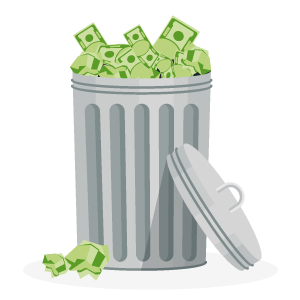The collision repair industry has proved resilient over the years. No matter what the challenge thrown in its face (and there have been far too many to count), the industry has shown a remarkable ability to rise up, face the challenge and move forward as a better business.
The year 2020 was certainly a trying time for collision repairers and the whole world, for that matter. The disruption to business and personal life was monumental and created a seismic ripple throughout the globe. There were a million ways to react to the stressors, but the one that seemed to prevail in the auto body world was one of optimism and a belief that things will get better. After all, collision repairers did not have the luxury of working from home. Instead, they dutifully reported to work to keep America and its economy moving, literally.
Time to Train
Jim Marshall, owner of Marshall’s Auto Body Experts in Billerica, Mass., was one of many collision repair facility owners who believe his business came out stronger and better due to the adversity present in 2020, especially when it comes to training.
“With the reduction of cars to the door, training became a focus,” Marshall said. “We partnered up two younger techs with a senior tech and created an area where we could teach the DFR process, as well as light collision repair. We monitored the growth in the junior techs throughout the four quarters, and now we see measurable growth in tasks increasing to the scope of work.”
Now, 2021 is looking bright for Marshall as both of his junior techs are on a pay bonus system to incentivize further growth. Plus, they have also become engaged with I-CAR.
Kevin McIlveen, collision center director of Russell and Smith Autogroup in Houston, Texas, also found that more downtime allowed his staff to catch up on much-needed training.
“The slowdown in business gave us the opportunity to train, train, train,” McIlveen said. “I compensated my employees for their time spent here even when no profit-producing work was being done. It gave us a chance to take a breath, catch up and work on our processes and knowledge.”
McIlveen believes that the things his team accomplished in 2020 will make them better prepared for the steady growth in business they will see in 2021.
“Taking care of our employees even when we were losing money I hope and pray showed them how valuable each and every one of them are to the whole company,” he said. “It also presented opportunities to let go of some negative influences that had been hanging around for way too long.”

Staff
Less cars to repair also meant more time to analyze the business in ways shop management did not have time to do before. For example, staffing. Was the number of employees they had correct? Who did what? Could staff be trimmed and duties consolidated? This was a big focus of Ronnie Johnston, owner of First Choice Collision, a multi-shop operation in Texas.
“Last year’s challenges forced us to look closer than ever at any unneeded overhead and/or staff,” Johnston said. “Some staff were just warm bodies that needed to be replaced, but with a short supply of professionals, we used them to the best of their abilities. And, with other shops letting go of employees, we were able to hire a couple of superstars.”

“We had a lot of waste and were throwing money at everything, so that stopped immediately.”
– Lee Amaradio, owner, Faith Quality Auto Body
Now that First Choice Collision is running lean, it has given them a new purpose and drive to look at every single opportunity to capture a new market that went away or took a hit due to the pandemic.
Lee Amaradio, owner of Faith Quality Auto Body in Murrieta, Calif., also got leaner by cutting staff, but he ultimately brought all his workers back with an eye on getting rid of other kinds of waste.
“I looked at everything and where we could cut,” Amaradio said. “We cut everything from uniforms to our insurance costs to match our lower payroll. I didn’t know if things would get better, so I cut back until we were able to make money with the numbers we were producing. We had a lot of waste and were throwing money at everything, so that stopped immediately. As a result, today we are running a much tighter operation and are way more profitable than before COVID-19.”
Marketing
Amaradio also kicked up his marketing efforts instead of “sitting on his hands” and waiting for things to change.
“As we finished out 2020, we developed hands-on marketing plans like we used to do in the old days that we thought we no longer needed,” he said. “We went full force into PR and landed some more accounts, and these connections are carrying us into 2021.”
Clay Hoberecht, owner of Best Body Shop in Wichita, Kan., shut down his operation to reconfigure, remodel and retool his shop – and also purchase his property. He took advantage of the Payroll Protection Program to keep his people working on the shop modifications and equipment installations. He also kept up his same level of marketing dollars even during the trying times of last year. He has always been big on marketing, as he is truly independent with no DRPs.
“2020 made Best Body Shop. The dream that’s been in my head for the seven years I’ve owned the shop came into fruition.” – Clay Hoberecht, owner, Best Body Shop
“We’re doing a stupid amount of marketing to the tune of about $20,000 a month,” Hoberecht said. “This is because we are not just an independent, but we are anti-DRP.”
His process of “wowing” the customer never changed during the pandemic, still including degreasing the engine, doing a complete interior detail, polishing out little scratches, even making sure to turn the seat warmers on if the vehicle has them.
“Plus, we have a little gift bag with our logo on it that has the lifetime warranty in it, plus some things like locally brewed coffee and coffee mugs,” Hoberecht said. “So, when they come out of the office, we tell them, ‘We really appreciate your trust in us,’ and walk them out to their car which is already warmed up.”
Sanitation
Due to the unique challenges in 2020, DeLee Powell, owner of Baker’s Collision Repair Specialists in Mansfield, Ohio, ramped up her sanitation efforts in the shop, which will continue in the future as a common-sense business practice.
All vehicle keys are sanitized as soon as Baker’s receives them, and the staff sanitizes high-traffic areas on the vehicles before they start the repair process: exterior and interior door handles, steering wheel, shifter – anything the customer touches.
“We assume that the consumer has COVID and act accordingly,” Baker said.
To put customers even more at ease, Baker told them any COVID that was in the vehicle at the time it went through the baking cycle in the spraybooth would be killed due to the bake temperature of 140 degrees (with the exception of electric vehicles).
Baker’s has also changed the way they clean their tech bathrooms.
“In the past, we relied on our employees to clean the technician bathrooms,” Baker said. “This was not up to par from my point of view when we inspected it. We hired professional cleaners to make sure this shared area was clean and disinfected regularly.”
Interior building doors are also propped open so that no one has to touch door handles.
Also, as far as their sick policy, in the past, employees would come into the shop with the flu or an upper respiratory infection and spread it throughout the shop. Now, any employee with a fever is required to stay home until the fever is gone.
Virtual Interaction
Last year made Kevin McIlveen realize that virtual business negotiations are here to stay. The benefits for the insurers are tremendous with employee-count savings and all of the expenses that go along with properties, company cars, etc.
“If you’re smart, it can be advantageous to take your time and document a good repair plan with the ability to prove what is needed to be done to a vehicle and why with pictures, documentation from manufacturers and FaceTime if necessary,” he said. “Virtual is good for both sides of the business if done correctly and fairly.”
Summary
Some collision repairers believe 2020 was the best thing that ever happened to them. Clay Hoberecht, for example, says 2020 “made” his shop. He finally had the time to bring the dream he had in his head for seven years to fruition.
“I’ve had an idea of the workshop and of the workflow, what kind of booth I wanted, what kind of measuring system and triage area I wanted,” he said. “As I’ve owned this business, I’ve become a student and learned about the different changes that are required as we’re repairing vehicles. And so, I’m noticing the changes that are needing to happen, and 2020 actually gave us the opportunity to put those together.”
All the more reason there is a bright outlook on 2021 for the collision repair industry.














